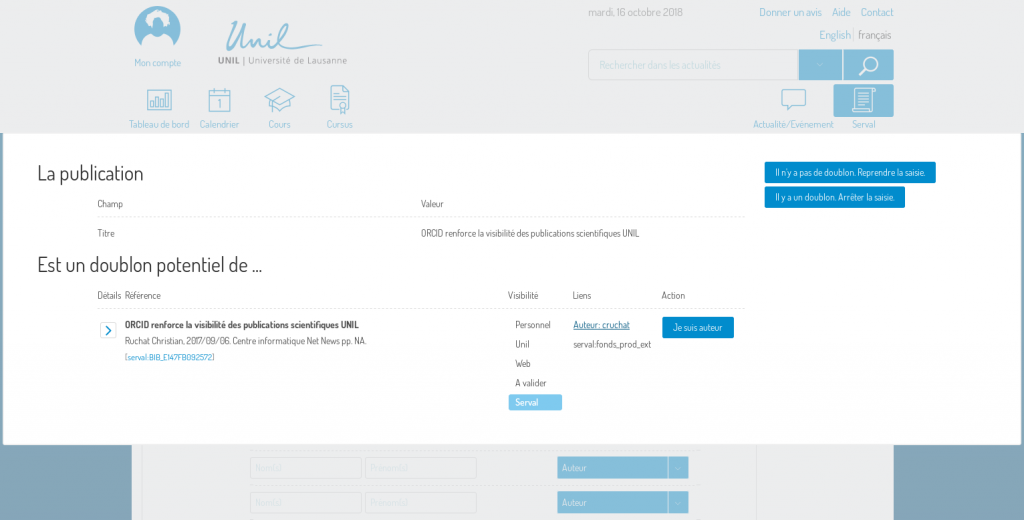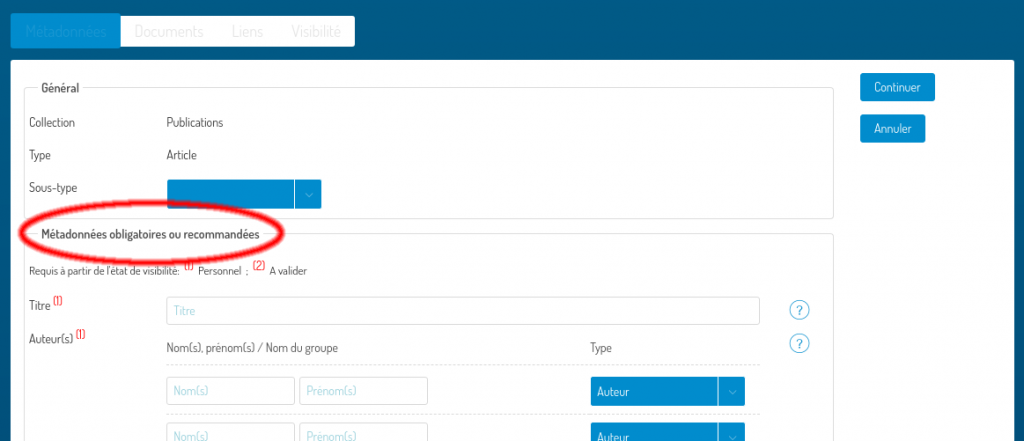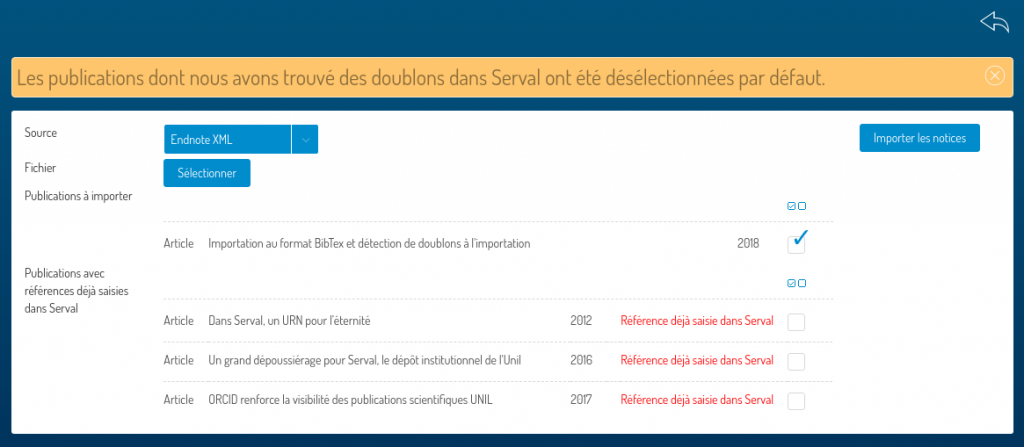A detection of potential duplicates has been added to the creation (automatic and manual entry):

A detection of potential duplicates has been added to the creation (automatic and manual entry):

Automatic / manual entry
When you start a new entry, the first screen now gives you two choices:

Highlighting mandatory or recommended / optional metadata
In the metadata entry step, the mandatory or recommended fields are now grouped at the beginning of the input form.

Rules for the “language” and “pages” fields
The fields “language” and “page” are not mandatory anymore since the state “to be validated”. The field “language” is mandatory since the “personal” state. “Pages” is no longer required but simply recommended.

Simplification of the entry of “reference identifiers”
The entry of reference identifiers is no longer limited to a maximum of 2 of these. You can enter them directly without having to select the ones you want.

New field: “research data”
You can enter the DOIs of the research data associated with the publication.

Adding buttons for sharing on social networks
Buttons to share a publication on social networks Twitter, LinkedIn and Facebook have been added in the details of publications in “serval” state.

Removing the reroid identifiers
Reroididentifiers, which are no longer valids, have been removed from the display and entry. They will be deleted from the data as the records change.
Removing PAC Code (Preservation And Conservation)
The PAC code, which was entered by validators during validation, was removed.
A request copy functionality has been added. The button to make the request is displayed in the details of the record when the full text is still under embargo or not in the repository.
Example when there is a document under embargo:

Automatic links from ORCID identifiers
In the “links” step during a creation or when using the “Automatic Proposals” button during an edition:
The following conditions must be met:
Link automatically checked for the author
During a new entry, if the user is a member of at least one research unit and is in the list of proposals then the unit is automatically checked.
Proposed links deduced from the authors entered in the metadata
Proposals for links were made from the first 5 and last 5 people maximum for the fields author, (co-) directors, … Links are now deducted from all the values contained in the fields author, directors, co-directors, editors and translators.
Display faculties / units in links
In the “links” step, the units or faculties of the persons are displayed.
Publications with a DOI, PMID or ISBN have an Altmetric badge, if it exists, displayed in their details:

Importing BibTeX citations from a file is now available in Serval:

A duplicate detection, similar to that performed when importing from an ORCID folder, is performed when importing BibTex citations. It has also been added to the Endnote XML import:

A new feature has been added to Serval. You can now add a bind as an author to a publication in the “to be validated” or “serval” state. More information about this feature.
The import and export works from Serval to ORCID records is possible since the 30 August 2017. More information is available in the article ORCID renforce la visibilité des publications scientifiques UNIL published in CiNN of autumn 2017.
The University of Lausanne’s portal, MyUNIL, has also an english version. Now you can also use the interface of Serval in MyUNIL in english.
Modifications:
Interface of research (ergonomics, modification of the research of the faculties/units, …)
Entering links (ergonomics, automatic proposals of links, …)
Added History containing change of visibility for Validators
Adaptation of proposed choices for document versions
Two features have been added to Serval:
Add documents to a publication in “serval” state